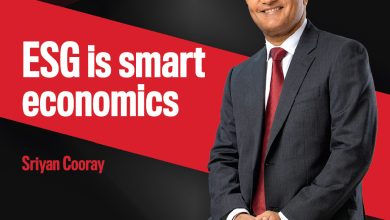STRATEGIC VISION
Defining a purpose
Sanjiva Weerawarana

Every organisation has a strategic vision that guides it in defining what it wants to achieve in the long term. But how you go about achieving these goals is key; and to this end, purpose, innovation and a flexible culture play a key role, says Sanjiva Weerawarana.
Much like individuals have a purpose in life, a business too needs to define and embrace a purpose that goes beyond merely making money.
“Profits are important but solely focussing on the bottom line is uninspiring. The purpose should be something bigger and meaningful,” he maintains, citing Elon Musk’s purpose for SpaceX (to make humanity a multi-planetary species) as an example.
Employees too will be motivated and contribute positively to the company’s
long-term goals.
INNOVATIVE FOCUS In terms of strategies, Weerawarana notes that innovative thinking with a global perspective will help organisations step out of their comfort zones and push boundaries.
However, he notes that it’s important to do this within their areas of expertise and avoid diversifying into unrelated fields: “A major flaw in some strategies is the drive to become conglomerates and thereby foray into unfamiliar domains.”
“Instead, organisations must focus on expanding their global influence and achieving international brand status through innovation,” Weerawarana explains.
He explains that this is common in family run businesses due to generational shifts where the second or third generation tend to focus more on maintenance rather than innovation. With the Sri Lankan market being relatively small, local businesses
must seek larger markets to achieve long-term scalability.
In the tech world, US companies like Google and Microsoft exemplify global success. Another example is Apollo Hospitals in India, which is increasing its global presence by establishing facilities elsewhere with its established expertise in healthcare services.
PROGRESSIVE CULTURE The most important of them all is corporate culture, Weerawarana emphasises.
He highlights the need for a progressive and open culture that keeps pace with the times, and ensures that the corporate environment is open, fun, collaborative and inspirational.
This begins with effective leadership, which is crucial for defining, shaping and achieving any vision or strategy. This involves more than simply steering a company; it means inspiring and guiding a collective effort towards a shared vision.
“Leadership shouldn’t be confined to the CEO – it should be nurtured across the company by empowering individuals at all levels to take the initiative and lead in their roles. This approach transcends traditional management theories, focussing instead on collaborative decision making and taking ownership to achieve them,” Weerawarana elaborates.
Decentralised decision-making processes can empower employees, fostering a sense of autonomy coupled with accountability.
Encouraging a culture of ‘ask for forgiveness, not permission’ can lead to a more dynamic and innovative workplace where taking calculated risks is seen as a path
to growth rather than a potential pitfall.
SHARED SUCCESS Transparency and visibility within the organisation act as catalysts for innovation, as they ensure that everyone is aligned and informed.
The same applies to the corporate environment as well, Weerawarana notes, adding that organisations should focus on promoting flexibility by abandoning rigid formalities that stifle creativity and innovation.
This shift can result in a more motivated and productive workforce, driving the company forward.
Another aspect that’s not common in Sri Lanka is granting equity to employees through employee share option schemes that help align the company’s and workforce’s interests. Stakeholders, including employees and government officials, should share in the corporate’s success through equity participation.
This promotes sustainable growth and shared rewards.
“By offering equity, companies can foster a sense of ownership and commitment among employees, ensuring that everyone is invested in the business’ success and working towards a common objective,” he concludes.





